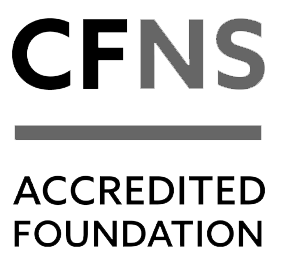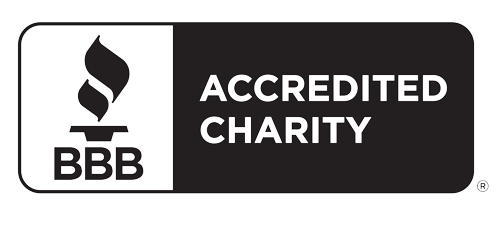In this Issue:
An Obligation to Give | Voices for Wellness |50 Years of Philanthropy – A Community Celebration Event Recap | Take the NoCo Pledge | Upcoming Cheers to Change Brewery Events | Changemakers in Action | Northeast Colorado Intersections Report in the Works | Get to Know Us at a President’s Lunch and Learn | Private Foundation to Donor Advised Fund (DAF): Keep it Simple
An Obligation to Give: One Family’s Simple View on Philanthropy
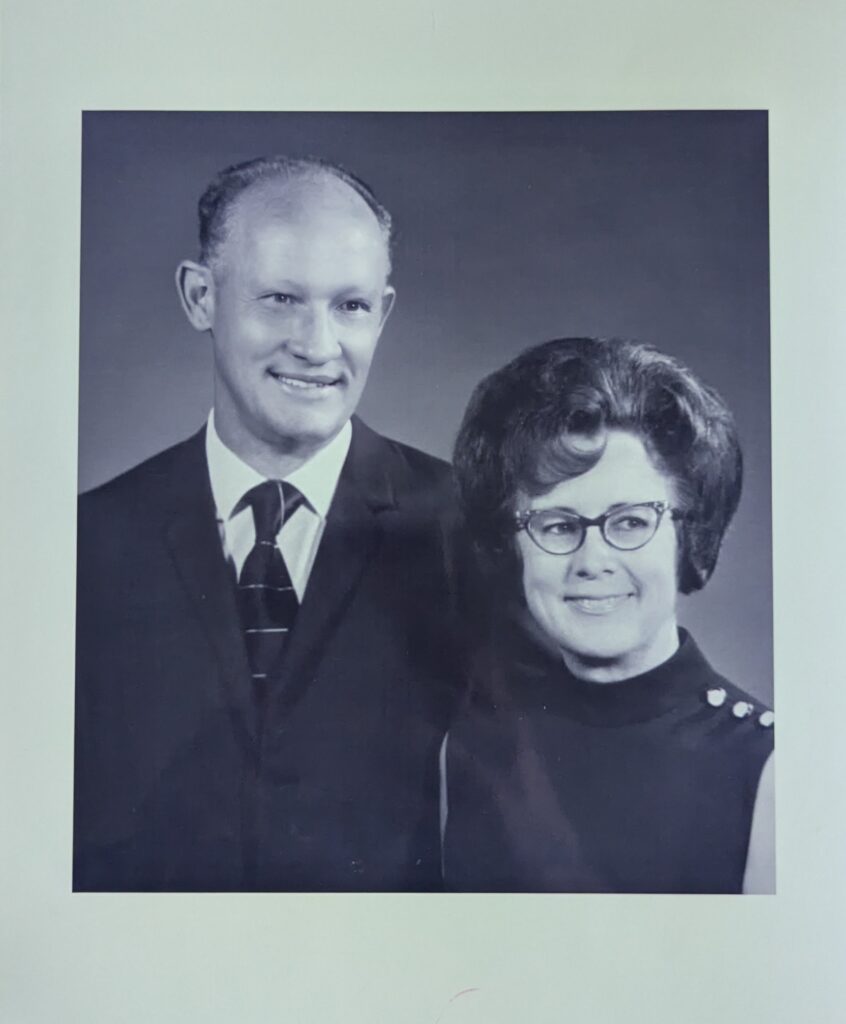
Enid Elliot and Alvin Miller were both born in Colorado and attended Ault High School, where they first met. Neither Enid nor Alvin grew up wealthy, having lived through the 1929 Stock Market Crash and the Great Depression.
Alvin was drafted into the Army and stationed in the Philippines. He was then sent as part of the occupation army to Japan, where he became acquainted with a Japanese family. Even after returning to America, Alvin would send this family food packages every month to help them get back on their feet. When they eventually told him they didn’t need the support anymore, he started giving instead to Voice of China and Asia.
After returning to Fort Collins, Alvin married Enid, and slowly they started building their life and wealth. Alvin’s father bought some PUC (Public Utilities Commission) permits around Fort Collins in order to haul milk, with routes going as far as Denver and Cheyenne. These PUC permits helped re-establish their family in local business and helped get them back on their feet. Later, Alvin became a partner in Miller Brothers Construction Company and, later, Elliott Miller Construction Company.
Alvin and Enid had a strong presence in their church, First Baptist Church. And their faith helped guide them in their philanthropic journey and other aspects of their life, including raising their sons, Rex and Bruce.
“Probably the best thing that ever happened to me was being born into the family I was born into,” said Rex.
Rex recalls his parents being very genuine, humble people. When they started making money, they didn’t spend it on fancy cars, but they gave it away to people who needed it more.
For Alvin and Enid, their giving revolved around helping to increase access to opportunity. They gave to children’s organizations and orphanages, because children are the most vulnerable in our communities. They also gave internationally to organizations such as Voice of China and Asia.
After Alvin and Enid died, their trust was passed on to their sons, which was eventually taken over by Rex. He continued in his parents’ footsteps, giving to similar organizations and having the same outlook on giving to provide access to opportunities.
Rex’s parents instilled the belief in him that if one has the opportunity to, then one has an obligation to give and help those who need it most. He also started supporting more organizations that worked with animals, adding to the already long list of organizations that the family supported regularly.
While Rex has generously given to our community and other communities for decades, he is as humble about his legacy as his parents were. Just a simple family with good values and the obligation to give when they can. It’s as simple as that.
“I think my parents would tell you the same thing—they were blessed to have the journey they did,” said Rex, “They came back from nothing, they did rather well, but they would tell you it’s not about them. They were incredibly fortunate and blessed to live the life they did.”
Voices for Wellness: Nonprofits Talk Mental Health Awareness and Action
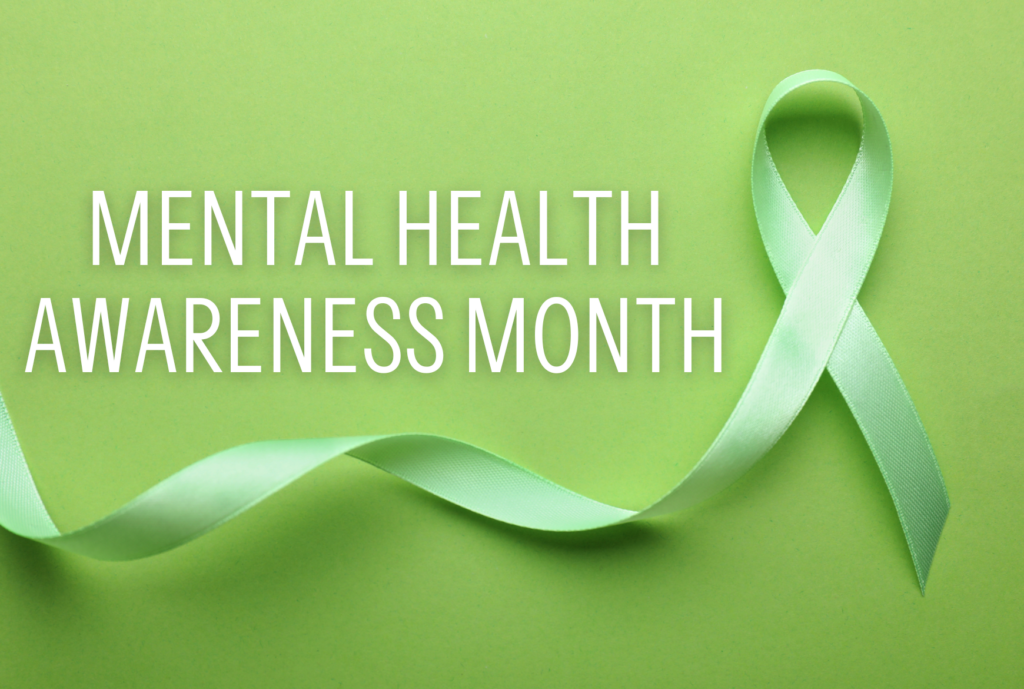 May is Mental Health Awareness Month—a time to reflect, engage, and take action on an issue that continues to affect millions across our communities. While awareness has grown in recent years, the need for open dialogue, accessible resources, and sustained support remains as urgent as ever. This month, we reached out to several nonprofits dedicated to mental health advocacy and care to learn more about the important work they’re doing. From crisis intervention to community education, these organizations are making a real impact—and reminding us all that mental health is a cause worth championing every day of the year.
May is Mental Health Awareness Month—a time to reflect, engage, and take action on an issue that continues to affect millions across our communities. While awareness has grown in recent years, the need for open dialogue, accessible resources, and sustained support remains as urgent as ever. This month, we reached out to several nonprofits dedicated to mental health advocacy and care to learn more about the important work they’re doing. From crisis intervention to community education, these organizations are making a real impact—and reminding us all that mental health is a cause worth championing every day of the year.
Learn more about what Estes Valley Crisis Advocates, EVICS Family Resource Center, and Alliance for Suicide Prevention of Larimer County are doing in the mental health space.
In what ways does your organization address gaps in mental health care that are often overlooked?
Estes Valley Crisis Advocates: We are a small rural mountain town organization supporting survivors of domestic violence. We work with clients that fall through the cracks due to a lack of insurance, lack of resources (time and money), or access to or trust in local providers based on stigma surrounding domestic violence issues. Sometimes we are the only organization that people will reach out to because we are 100% confidential.
EVICS Family Resource Center: We focus on supporting monolingual Spanish-speaking individuals and families—an often overlooked population in mental health care. These families frequently face language barriers, cultural stigma, and a lack of accessible services. Our bilingual staff provides culturally responsive mental health support, advocacy, and education that helps bridge this gap with trust, compassion, and consistency.
We also partner with trusted local providers and agencies to ensure families are connected to appropriate, ongoing care when needed. Through collaborative referrals, shared case support, and coordinated outreach, EVICS strengthens the broader mental health safety net in Estes Valley.
Alliance for Suicide Prevention of Larimer County (ASP): We address critical gaps in mental health care by focusing on prevention, education, early intervention, and postvention—areas often overlooked in traditional systems. We prioritize reaching those who might not otherwise access support, including youth, men, LGBTQ+ individuals, veterans, and those affected by suicide loss. Our impact is clear: In 2024, ASP served over 11,800 people through education, outreach, and support. Through our REPLY program, 5,041 youth were trained in suicide prevention and resilience, with 94.7% reporting increased help-seeking behavior. Hundreds of adults completed QPR (Question, Persuade, Refer) suicide prevention training, expanding our network of “gatekeepers” ready to respond to mental health crises.
Can you share a specific moment or story that reflects the transformative power of your work—not just for individuals, but for shifting perceptions around mental health in your community?
Estes Valley Crisis Advocates: We speak to many community groups about mental health and domestic violence to reduce the stigma around that topic so that our community members will feel comfortable reaching out for help.
EVICS Family Resource Center: One moment that truly reflects the heart of our work happened when a Spanish-speaking mother came to EVICS in tears. She was overwhelmed, isolated, and struggling with postpartum depression—but didn’t know where to turn. She didn’t speak English, didn’t have health insurance, and feared being judged or misunderstood. She was able to immediately speak with a Spanish-speaking mental health professional in a space that felt safe and welcoming.
What’s most powerful is what happened next: a few months later, she volunteered to speak (in Spanish) to a group of new moms. “I thought I was alone,” she said. “But I wasn’t. And now I want other moms to know they aren’t alone either.”
Her vulnerability and voice helped shift the conversation in our community. Mothers who once stayed silent about their struggles are now reaching out, attending support groups, and embracing mental health as part of their family’s well-being. That’s the ripple effect we aim for—where individual healing leads to a more compassionate and informed community.
Alliance for Suicide Prevention of Larimer County: We believe the power of early intervention transforms both lives and community attitudes toward mental health. One meaningful example came after a REPLY presentation in a local middle school. A student, having learned how to recognize warning signs and how to ask for help, approached a trusted adult the same day to share their struggles with depression. That early outreach led to the student getting connected to mental health support services before a crisis developed. Moments like these reflect more than individual success; they signal a cultural shift. Our work at ASP doesn’t just change lives; it changes how mental health is viewed and valued at every community level.
As the mental health landscape continues to evolve, how is your organization innovating or adapting to ensure long-term impact and sustainability in the face of growing needs and limited resources?
Estes Valley Crisis Advocates: We have had the best outcomes when we encourage clients to reach out to licensed therapists for themselves and/or their children in a nonjudgmental approach. We offer help by providing lists of potential therapists for clients to reduce the barrier to reaching out.
EVICS Family Resources: We are adapting through strategic partnerships, community-based programming, and culturally responsive innovation. The need for mental health support—especially among Spanish-speaking and low-income families—is outpacing traditional systems. In response, we’ve embedded free, onsite mental health consultations at our family resource center, removing barriers like cost, transportation, and language. We’re also cross-training staff in trauma-informed care and mental health navigation so every family advocate can be a trusted guide, not just a referral source. In partnership with local agencies, schools, and providers, we co-host events, share resources, and reduce service duplication. We’re expanding our reach through scalable community education—parenting workshops, youth groups, and support circles that normalize mental health conversations. By staying community-rooted and equity-driven, we’re meeting today’s needs and building a long-term model of care that grows with the families we serve.
Alliance for Suicide Prevention of Larimer County: We continuously evolve to meet rising mental health needs through innovative, community-driven strategies focused on scalability, sustainability, and upstream impact. Recognizing that clinical services alone can’t meet all needs, we empower everyday community members—teachers, parents, peers, and employers—with tools to recognize warning signs and act early. We diversify funding through partnerships, grants, and year-round sponsorships to ensure long-term sustainability. Centralized platforms like GiveSmart streamline donor engagement, event management, and financial tracking, freeing up more resources for impact. ASP remains committed to meeting growing needs with compassion and innovation while advancing upstream strategies through Imagine Zero and other regional initiatives.
These are only a few of the many amazing organizations in Northern Colorado that work in the mental health space and help our community members each and every day. Thank you all for the incredible and important work you are doing for our region!
50 Years of Philanthropy – A Community Celebration Event Recap
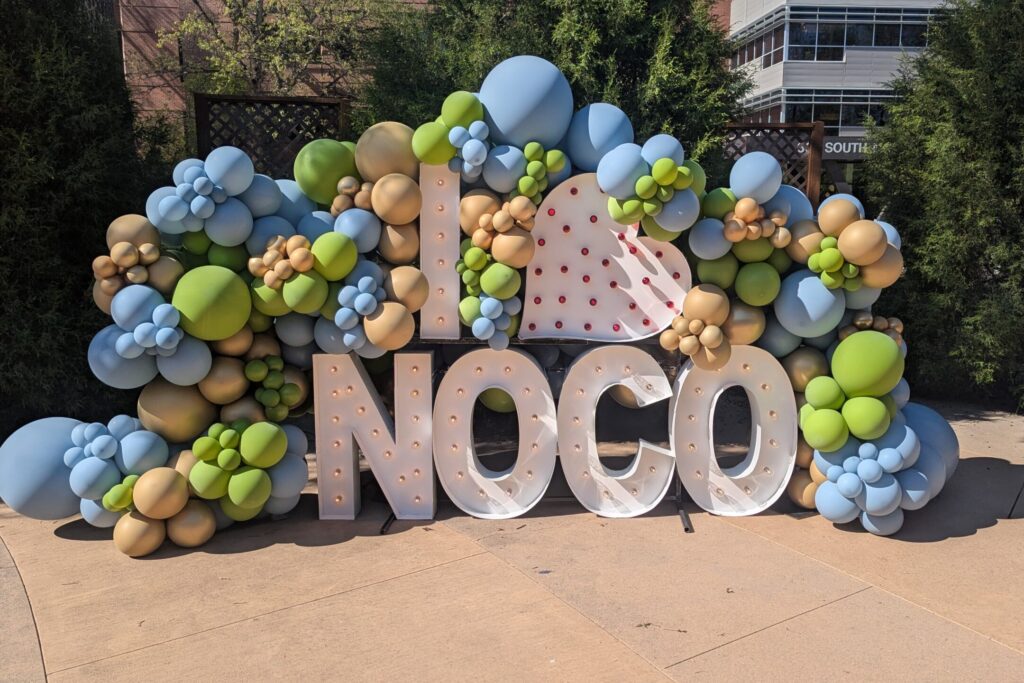
As many of you know by now, we threw a huge party on May 8th to celebrate 50 Years of Philanthropy in our region. While this was our 50th anniversary celebration, it was so much more than that. It was a celebration of the impact we all have had on our communities.
The 50 Years of Philanthropy – A Community Celebration was a huge hit and left us all feeling inspired by the past and energized to keep the momentum going in the future. With more than 800 people in attendance, Kyle Clark emceeing, performances from Tiffany Blake, Hsin-Hsuan Lin, Stephen Brackett, Canyon Concert Ballet dancers, and Guerrilla Fanfare, a living timeline, and so much more, it was truly a night to remember.
If you were not able to attend or just want to relive the evening, you can find the photo gallery and videos from the event online!
Thank you to everyone who joined us and helped make it a magical event.
Join the Movement: Take the NoCo Pledge
At the Community Celebration, we introduced the NoCo Pledge — a new campaign celebrating philanthropy that allows individuals, families, businesses, and nonprofits to lead by example.
The NoCo Pledge offers a way for everyone to take part in creating an impact in their community. From creating a charitable mission statement with your family, to supporting local nonprofits, to simply talking with your friends about causes you care about, every single person can make an impact in our region.
Join the movement, inspire positive impact, and help strengthen Northern Colorado by promoting the power of philanthropy.
Learn more about the Pledge and check out the NoCo Pledge wall to see everyone’s pledges, find yours, and share directly to social media or post using hashtag #NoCoPledge.
Your business or nonprofit can take the Pledge, too!
Raise Your Glass: Upcoming Cheers to Change Brewery Events
As part of the NoCo Foundation’s 50th anniversary, we partnered with four different breweries throughout our region to create the Cheers to Change campaign. Each brewery will brew a special beer this summer for the campaign. When you purchase a pint of the Cheers to Change beer, a dollar will go back into that community’s Community Fund at the NoCo Foundation, which will make its way back into the community to create positive impact through grants to local nonprofits—hence the name Cheers to Change!
The partnering breweries include Verboten Brewing in Loveland, Horse and Dragon Brewing in Fort Collins, Avant Garde Aleworks in Estes Park, and City Star Brewing in Berthoud.
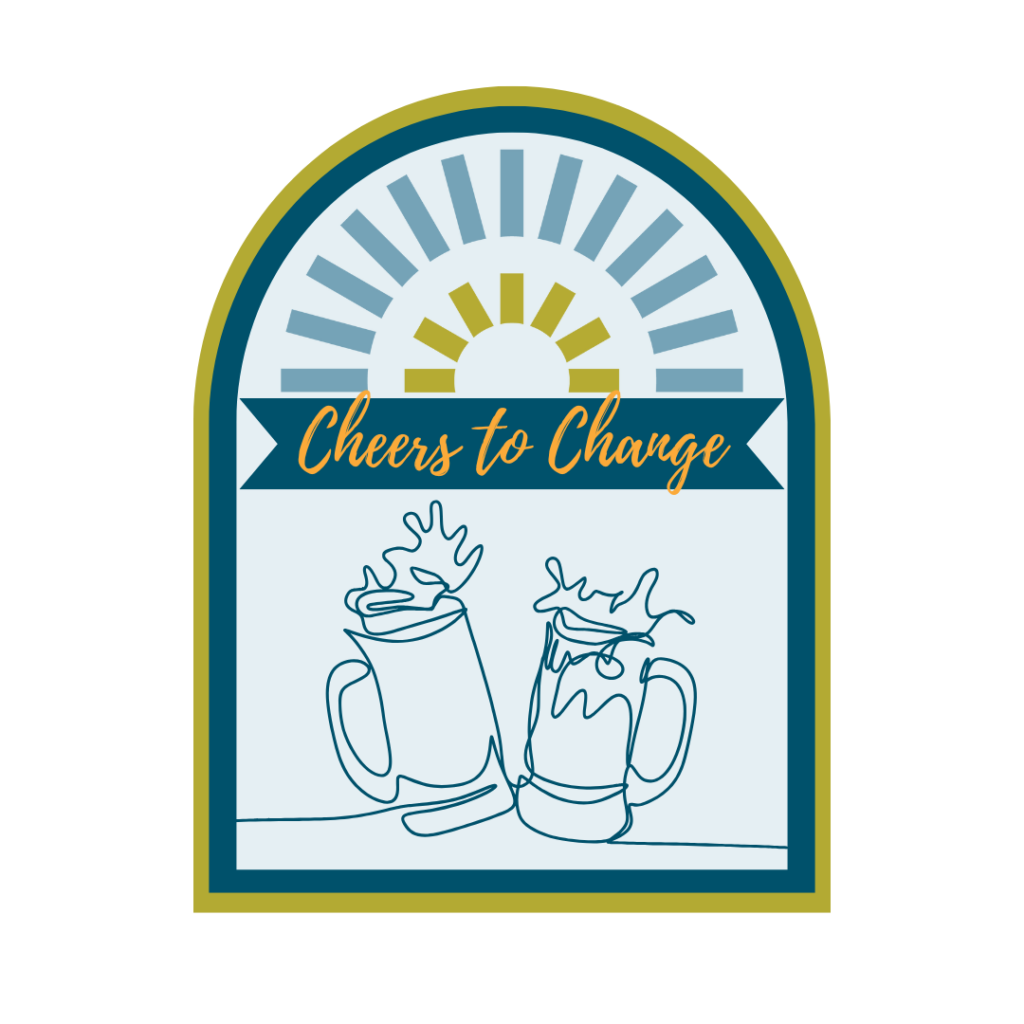
We hosted the first Cheers to Change tapping event last week at Verboten Brewing, but you can still join one of the others! Check out the days and times below, come grab a Cheers to Change beer, and help make a difference in your community! Can’t make any of these dates? You can still support the community by stopping by the brewery and ordering a Cheers to Change beer until they run out!
Horse and Dragon Brewing
Friday, July 11, 4:00-6:00 p.m.
124 Racquette Ct, Fort Collins
Avant Garde Aleworks
Friday, August 8, 3:00-5:00 p.m.
920 Dunraven St., Estes Park
City Star Brewing
Friday, August 29, 4:00-6:00 p.m.
320 Mountain Ave., Berthoud
Changemakers in Action: Inaugural Cohort Completes Program with Collective Grant
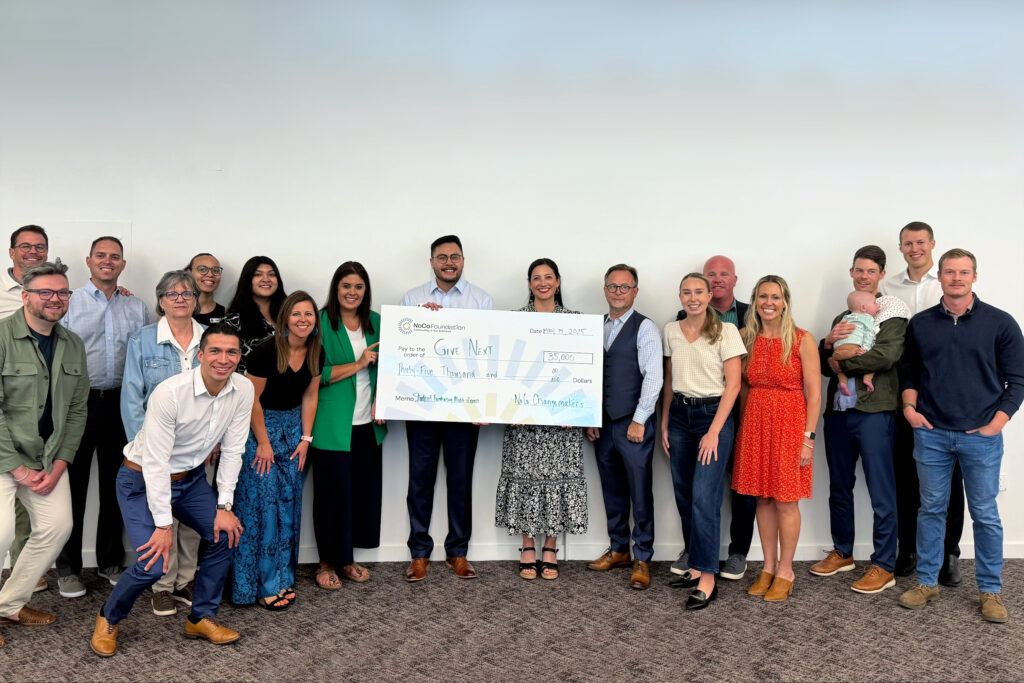 Last fall, we launched the NoCo Changemakers program—a next-generation philanthropy program designed to support our communities’ next philanthropic leaders. During their time as Changemakers, the group of young professionals learned about the philanthropic landscape and local nonprofit ecosystem, grantmaking strategies, innovative philanthropic tools, collaborative grantmaking, and developed their own philanthropic legacy. At the end of the program, the participants were tasked with making a collective decision and granting to a regional nonprofit.
Last fall, we launched the NoCo Changemakers program—a next-generation philanthropy program designed to support our communities’ next philanthropic leaders. During their time as Changemakers, the group of young professionals learned about the philanthropic landscape and local nonprofit ecosystem, grantmaking strategies, innovative philanthropic tools, collaborative grantmaking, and developed their own philanthropic legacy. At the end of the program, the participants were tasked with making a collective decision and granting to a regional nonprofit.
The first NoCo Changemaker class completed the program and graduated on May 15, 2025. They concluded by awarding a $35,000 collective grant—funded by participant contributions and matching support from Bohemian Foundation, and NoCo Unify—to Give Next.
Focused on youth empowerment, the group chose Give Next for its mission to foster a culture of giving and empower young people to lead local grantmaking. This funding will match student fundraising over the next three years, amplifying youth-led impact across our community.
Do you want to be a part of the next NoCo Changemakers Cohort? Applications are now open! Learn more and apply by June 30 and become the next generation of changemakers in Northern Colorado.
New Faces of the Foundation
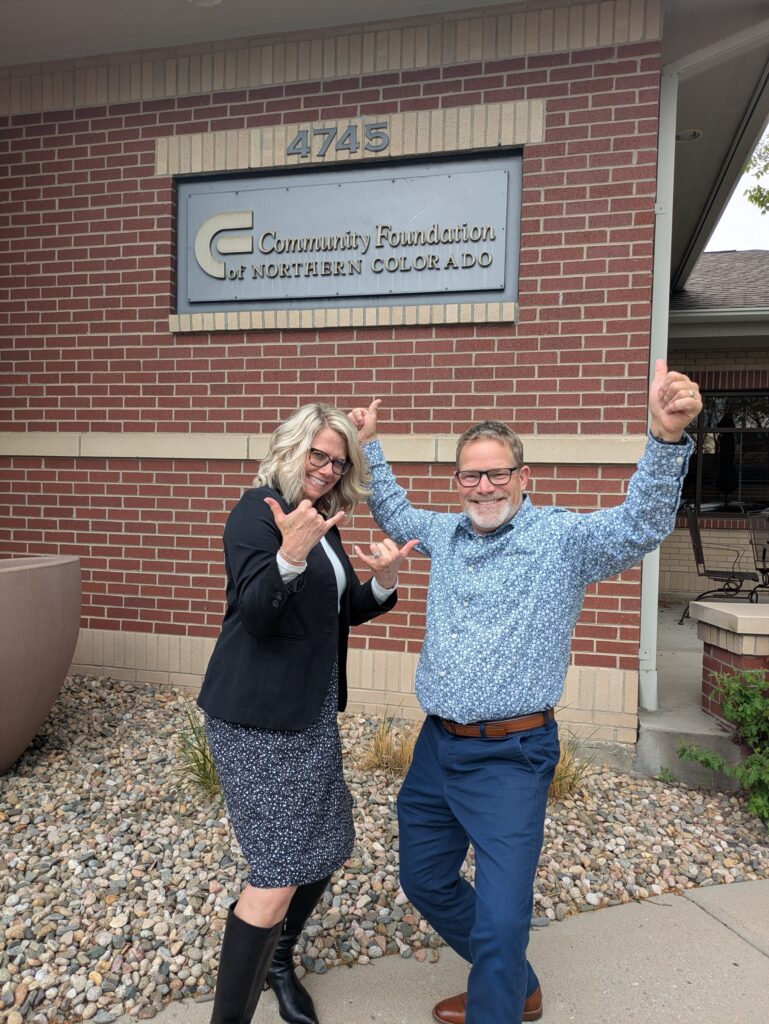 The NoCo Foundation welcomed TWO incredible new people to our team this month! Lyndsey Hertz and Scott Hapner joined us as Philanthropic Advisors. The Philanthropic Advisors work to help new and existing fundholders meet their philanthropic goals and expand philanthropy in our region for even greater impact.
The NoCo Foundation welcomed TWO incredible new people to our team this month! Lyndsey Hertz and Scott Hapner joined us as Philanthropic Advisors. The Philanthropic Advisors work to help new and existing fundholders meet their philanthropic goals and expand philanthropy in our region for even greater impact.
About Lyndsey:
A proud Colorado native, Lyndsey brings decades of experience in the nonprofit sector and a deep passion for strengthening community connections. As a dedicated and community-minded professional, Lyndsey is enthusiastic about building intentional relationships with donors to help them achieve their philanthropic goals and support the causes they care about. In addition to her professional work, she enjoys spending quality time with family and friends, soaking up lake days, and cheering on the CSU Rams.
About Scott:
Scott brings with him a strong background in fundraising, nonprofit leadership, and a deep commitment to our Northern Colorado community. With years of experience building lasting relationships with businesses and individuals and a lifetime of service through Scouting America — including achieving the rank of Eagle Scout — he exemplifies the values that drive the NoCo Foundation mission. Scott is a dedicated husband and proud father of a Poudre High School senior and sophomore. Together, the Hapner family enjoys skiing, camping, and visiting National Parks.
Special Announcement: Northeast Colorado Intersections Report in the Works
In February of 2024, the NoCo Foundation released the Northern Colorado Intersections Report, the first-of-its-kind regional indicator report that provided a framework for challenges our region faces and gave us a starting point for working toward common solutions.
We believe that understanding and increasing regional well-being requires an approach that brings people, organizations, and communities together and that we can achieve more together than we can alone. A regional perspective can provide a stronger network of support and voice for advocacy, both locally and at the broader state and regional levels. This work is about increasing the capability and capacity for individuals, communities, and the region as a whole to contribute to and achieve well-being at every scale.
We are excited to take this work a step further. We are partnering with Colorado State University to develop a Northeast Colorado Intersections Report, which will be released in early 2026. This Intersections Report will cover the regional challenges that the six northeast Colorado counties face, including Logan, Morgan, Phillips, Sedgwick, Washington, and Yuma counties.
Get to Know Us at a President’s Lunch and Learn
In 2025, the NoCo Foundation began hosting President’s Lunch and Learns. We invite members of the Northern Colorado community to join us and learn more about the many facets of the NoCo Foundation’s work. Kristin Todd, our President and CEO, explains the ins and outs of our work and highlights opportunities to collaborate to make more impact in our community.
We have hosted a handful of these Lunch and Learns over the past few months and have received a ton of positive feedback! We have a few more scheduled if you want to learn more about our organization. These will be held at our office at 4745 Wheaton Drive in Fort Collins.
Upcoming Dates:
- June 26, 2025, 11:30 a.m. – 1:00 p.m.
- August 5, 2025, 11:30 a.m. – 1:00 p.m.
- October 9, 2025, 11:30 a.m. – 1:00 p.m.
- November 5, 2025, 11:30 a.m. – 1:00 p.m.
Private Foundation to Donor Advised Fund (DAF): Keep it Simple
 The number of private foundations in the United States is nearing 150,000 with combined assets topping $1 trillion, so it’s no wonder people often consider establishing a private foundation when they explore structuring their charitable giving.
The number of private foundations in the United States is nearing 150,000 with combined assets topping $1 trillion, so it’s no wonder people often consider establishing a private foundation when they explore structuring their charitable giving.
Recently, though, the growth of donor advised funds (DAFs) to nearly 2 million in number—with annual grants from these vehicles reaching $50 billion—signals many people are starting to use donor advised funds in addition to, or in place of a private foundation. Some of your clients may even be considering transferring private foundation assets to a donor advised fund to carry out their family’s mission.
Take a moment to skim this checklist to help guide conversations with your clients.
“Reality check” the hassle. Day-to-day management and administration of a private foundation can become time-consuming, especially as responsibilities fall to second- and third-generation family members. Even the first generation may realize administrative work is taking too much focus away from nonprofits, the community, and grantmaking.
Review the tax rules. The IRS’s rules related to investments, distributions, and “self-dealing” are complex. Over time, family members may become frustrated navigating tax compliance. For instance, if a client plans to transfer all or part of a family business, now or in the future, it is critical to understand the benefits of using a DAF at the NoCo Foundation versus transferring the business interests to a private foundation (which can be disastrous from a tax standpoint).
Lean on the NoCo Foundation. Our team is happy to walk alongside you and your client through the steps to terminate a private foundation and move the assets into a donor advised fund. The first step is for the board of the private foundation to approve the termination and capture that approval in meeting minutes or a consent of directors.
Set up a donor advised fund. Your client can establish a DAF at the NoCo Foundation and choose the name (e.g., Smith Family Foundation Fund). Similarly, selection and succession of fund advisors (who will handle grantmaking) can mirror the private foundation’s board structure. As a result, the DAF can look and operate a lot like the private foundation.
Make a grant. The private foundation will distribute (“grant”) most of its net assets to the newly established DAF. The private foundation will need to pay all its liabilities and expenses before accounts are closed, so your clients will want to leave a reserve in the private foundation to cover final bills before completing the termination.
Finalize the termination. As long as the private foundation corporate entity is in good standing according to state laws, termination for tax purposes will be automatic and smooth because assets were transferred to the NoCo Foundation, a longstanding organization. The private foundation will then simply file an informational tax return with the Internal Revenue Service for its final year. Lastly, the private foundation should take any steps required for termination under the laws of all states in which it was registered, especially if the private foundation was organized in corporate form.
Check out this helpful chart comparing charitable giving options to determine the best approach for your clients. Whether your client is ready to transfer a private foundation this year or is simply evaluating options, give us a call. We’re happy to help!




